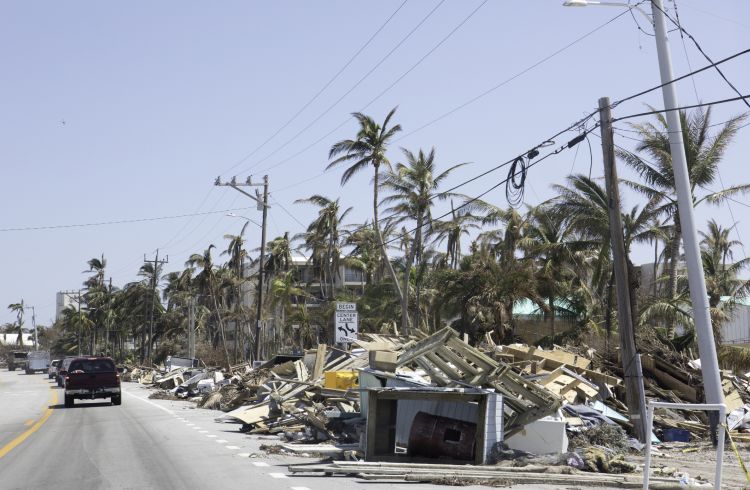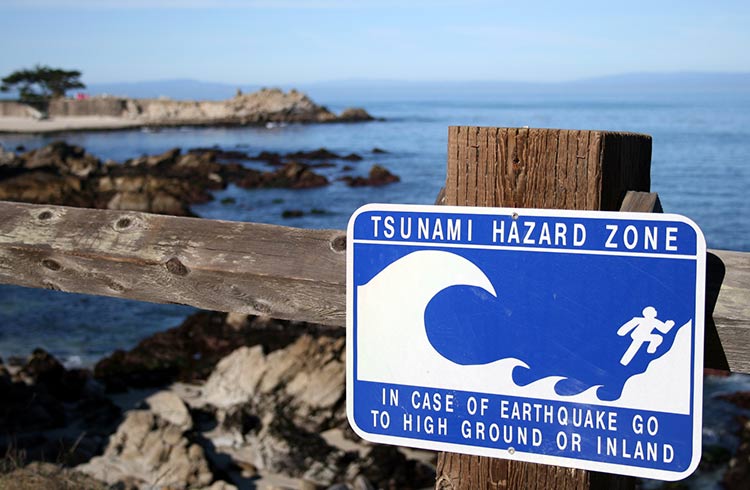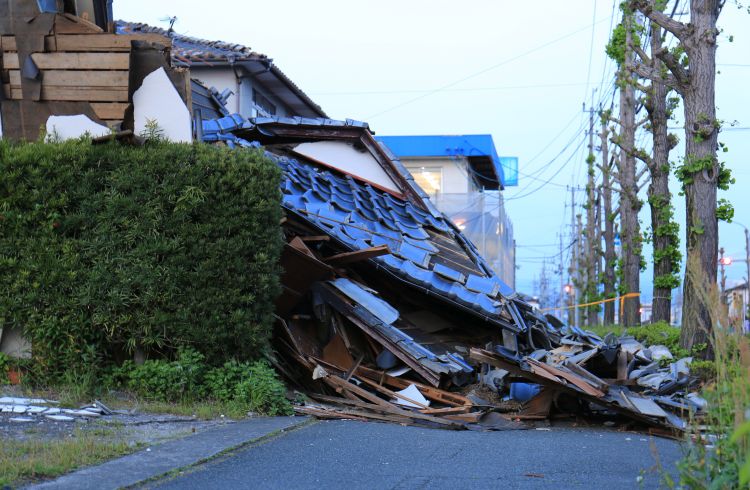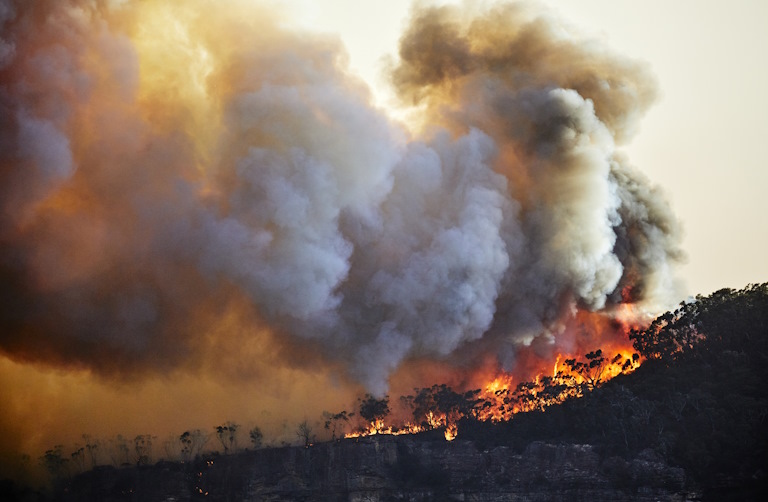How to Survive a Hurricane: Our Essential Safety Tips
How do you stay safe if a hurricane hits? Our tips on how to prepare for and survive a major storm.
 Photo © Getty Images/Jodi Jacobson
Photo © Getty Images/Jodi Jacobson
- What's a hurricane?
- When does hurricane season begin?
- Hurricane warnings and intensity
- What to do in a hurricane
What's a hurricane?
And what's the difference between a hurricane, a cyclone, and typhoon? These are all terms for the same weather phenomeon – a large, potentially destructive storm system which only forms in warm tropical waters. The main difference is where the storm occurs:
- Hurricanes occur in the Atlantic Ocean and northeastern Pacific Ocean
- Typhoons occur in the northwestern Pacific Ocean
- Cyclones occur in the South Pacific and Indian Ocean
In the southern hemisphere they rotate clockwise, and in the northern hemisphere they rotate counter-clockwise. This is due to a force known as the Coriolis Effect.
But what's a tornado?
While it's true that a tornado is similar to a hurricane – they are both rapidly rotating columns of air – tornadoes will form over land and are usually associated with supercells (a type of thunderstorm). Hurricanes, on the other hand, form over warm water, either tracking inland or further out to sea to die out, depending on conditions. Hurricane warnings can be in place for several days. Tornadoes are short-lived and form with little warning. Hurricanes often spawn tornadoes when they reach land, though these tornadoes are usually shorter in duration and less powerful than those that form in the US Great Plains.
When does hurricane season begin?
United States
Hurricane season in the US begins on June 1 and lasts until November 30, covering the entire summer season and most of autumn. For that reason, it's wise to keep an eye on weather reports during any coastal vacation. Over the last few decades, several hurricanes have caused serious damage from as far south as the Caribbean to as far north as New York and eastern Canada. The majority of storms come onshore along the Gulf Coast, Florida and the Carolinas, however, in August 2023, Tropical Storm Hilary became the first tropical storm to hit Southern California in 84 years.
Caribbean
The Caribbean hurricane season runs the same time as the United States, June to November. Many of the hurricanes which affect the US (including massive, destructive ones like Katrina, Sandy, Harvey, Ian, and Ida) are formed in the Caribbean. Other recent storms such as Irma and Maria in 2017 and Dorian in 2019 brought widespread destruction to the Caribbean region, with Puerto Rico, Dominica, Barbuda, and The Bahamas being especially badly hit.
Above-normal activity is becoming the norm in this region, it seems – 2020 was the most active Atlantic season ever recorded. 2022, though it had fewer storms, brought the highly destructive Fiona and Ian, and 2023 was the fourth-most active on record. In June 2024, Hurricane Beryl became the earliest Category 4 hurricane ever recorded in the Atlantic basin, and just days later, the earliest Category 5. It rapidly intensified and caused significant damage across the Windward Islands, plus landfalls on the Yucatán Peninsula and U.S. Gulf Coast, resulting in dozens of deaths.
Eastern Pacific
Hurricane season in the Eastern Pacific runs May 15-Nov 30. Most storms remain out at sea, but those that bring impacts to land may affect southwestern Mexico, the southwestern US, or turn west to affect Hawaii. In October 2023, Hurricane Otis struck Acapulco, Mexico, as a Category 5, the strongest Eastern Pacific hurricane to make landfall on record.
Central Pacific
This region includes the Hawaiian islands. The season runs June 1 to November 30. In July of 2020, Hurricane Douglas nearly made landfall in Hawaii – it would have been only the third hurricane in modern history to do so.
Western Pacific
Typhoon season, which impacts several parts of southeast Asia and mainland Asia, starts in May and runs until the end of November. Occasionally, there are outliers such as Pabuk which smashed into Thailand's southern coast in January 2019 before tracking its way northwest.
South Pacific
Cyclone season in the Pacific Islands and Australia generally runs from November 1 to the end of April, with activity generally peaking around February and March.
Indian Ocean
In the northern Indian Ocean, systems can happen all throughout the year, but are most common between April and December with peak activity during May and November. The southern Indian Ocean has a shorter season.
Hurricane warnings and intensity
There are two levels of alert for tropical storms and hurricanes: watch and warning.
WATCH: indicates a potentially destructive storm could strike your area within 48 hours.
WARNING: indicates a potentially destructive storm is expected to strike your area within 36 hours.
The intensity and potential for destruction of a storm are indicated by its "category". According to the Saffir-Simpson scale used by the NOAA National Hurricane Center, Category 1 is the lowest intensity, with sustained winds between 74-95mph (below that it's "high winds", "gale", or "tropical storm"). Category 5 is the highest intensity with sustained winds at 157mph or higher. There are some variations to this across the world, but generally, the higher the "storm signal" number, the more intense the storm is likely to be. China uses a color-coded system – orange and red are not good news.
What to do in a hurricane
The best way to survive a hurricane is to avoid one – if a storm is potentially heading towards a place you're planning to go, change your plans. If you're already in the path of the storm, get away from it – but make the decision to leave early. Don't wait until the last minute, because you may find yourself caught without proper shelter.
If you decide to stay and ride it out, it's advisable to get to an authorized evacuation center. The locations of these will be broadcast, or locals will know where they are. If there is no shelter, prepare to "shelter in place" in an internal room without windows.
Once a storm watch has been issued, make sure you are prepared in the event that the watch becomes a warning.
- Fill the gas tank on your car.
- Check batteries in flashlights and radios.
- Have extra batteries on hand.
- Secure all doors and windows.
- Close shutters or board up the windows.
- Have extra supplies on hand such as non-perishable food, clean drinking water (two litres/half a gallon per person per day – have enough for a couple of days) and prescription drugs.
During the storm
- Never go out during the storm. The winds can send flying debris right into you, causing injury and even death.
- Stay away from windows and doors.
- Keep on the alert for additional storm warnings. Hurricanes are known to spawn tornadoes, so be prepared to take cover if one should strike.
- While the storm is in progress avoid using electrical appliances.
- Stay off the telephone.
- All pets should be secure in carriers. The storm will be a frightening experience for them as well, and they could injure themselves or even you if the animal panics.
- Do not light candles or lanterns; they could get blown over causing a fire.
- The eye of the storm passing over could make you think the storm is over when the worst is still yet to come. Only use this calm in an extreme emergency to make critical repairs.
- Only after an official all-clear has been issued is it safe to come out.
After the storm
- Beware of downed power lines and gas leaks.
- Stay away from heavily damaged areas.
- Listen to your radio for instructions.
- Sometimes the greatest dangers of a hurricane are not the high winds themselves, but the storm surge and flooding that the storm produces. Be prepared for the possiblilty of heavy rains and flooding even after the storm has passed.
If you are injured
If you are injured or become ill, please seek medical aid and contact your travel insurance 24-hour emergency assistance. Be aware that any functioning hospitals and clinics will be busy caring for other people and there may be long delays. If you are in a region with no operating medical facilities please contact your travel insurance 24-hour emergency assistance immediately.
What is happening to me and who do I call?
The situation you are in can be extremely stressful. Call home and your country's consulate or embassy to let them know where you are, if you are alright and if you need any assistance. Keeping an item of comfort nearby, such as a family photo or religious item, or listening to your favorite music can often offer comfort in such situations. Call the emergency assistance line for your travel insurance should you need immediate attention.
Before you buy a travel insurance policy, check your government travel warnings and health advice – there may be no travel insurance cover for locations with a government travel ban or advice against travel.
Related articles
Simple and flexible travel insurance
You can buy at home or while traveling, and claim online from anywhere in the world. With 150+ adventure activities covered and 24/7 emergency assistance.
Get a quote


2 Comments
When is hurricane season in Florida USA?
Incorrect info in article.
Hurricanes spin counter clockwise in Northern Hemisphere,
Cyclones clockwise in Southern Hemisphere.